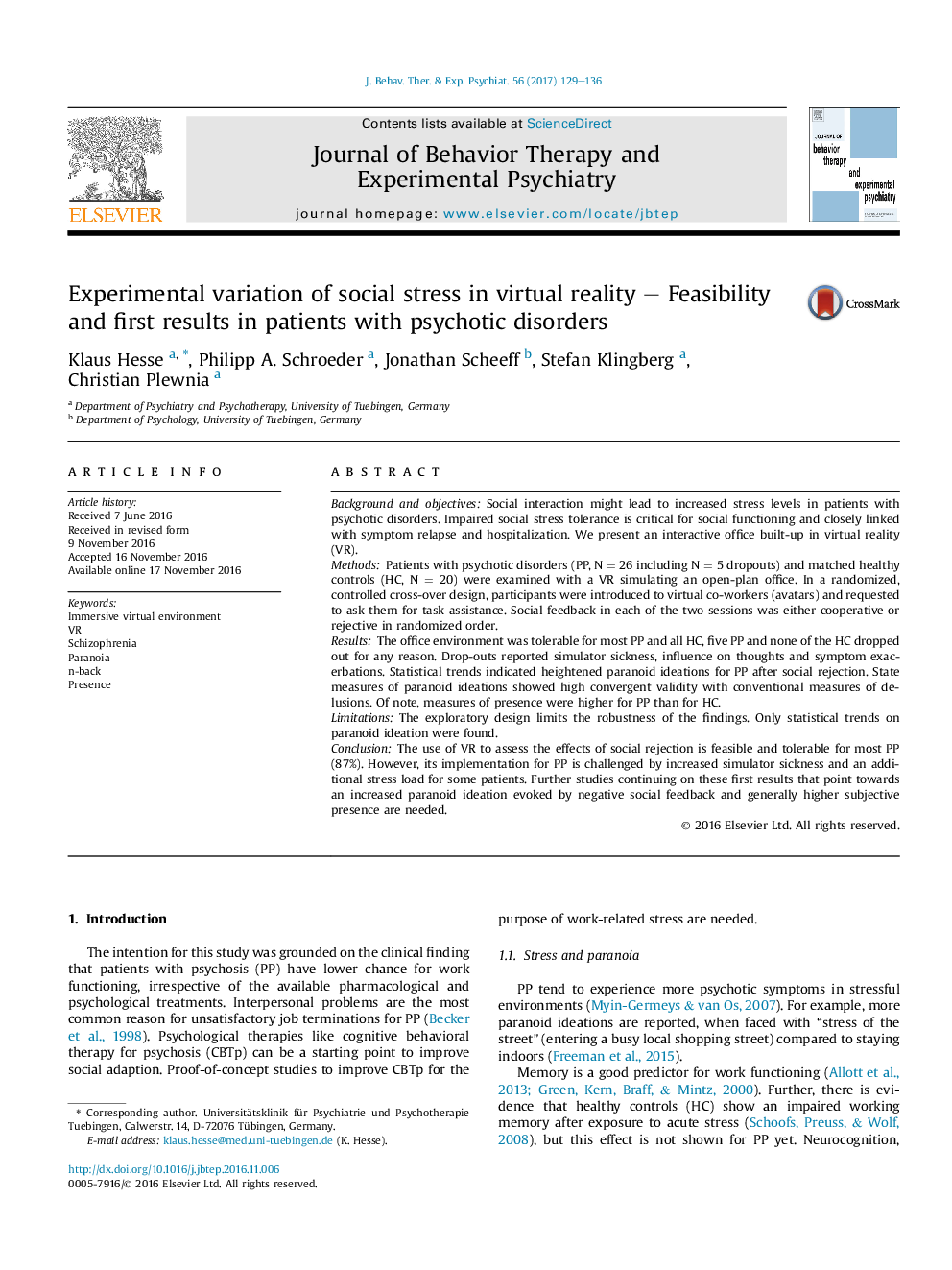| Article ID | Journal | Published Year | Pages | File Type |
|---|---|---|---|---|
| 5038994 | Journal of Behavior Therapy and Experimental Psychiatry | 2017 | 8 Pages |
â¢The office-based VR is a feasible method to investigate work-related stress in psychosis.â¢Patients with psychosis report higher presence in the VR than healthy controls.â¢Patients with psychosis tended to show more paranoid ideations after rejection from colleagues.â¢VR can aid research in psychopathology, in proof of concept studies and therapy.
Background and objectivesSocial interaction might lead to increased stress levels in patients with psychotic disorders. Impaired social stress tolerance is critical for social functioning and closely linked with symptom relapse and hospitalization. We present an interactive office built-up in virtual reality (VR).MethodsPatients with psychotic disorders (PP, NÂ =Â 26 including NÂ =Â 5 dropouts) and matched healthy controls (HC, NÂ =Â 20) were examined with a VR simulating an open-plan office. In a randomized, controlled cross-over design, participants were introduced to virtual co-workers (avatars) and requested to ask them for task assistance. Social feedback in each of the two sessions was either cooperative or rejective in randomized order.ResultsThe office environment was tolerable for most PP and all HC, five PP and none of the HC dropped out for any reason. Drop-outs reported simulator sickness, influence on thoughts and symptom exacerbations. Statistical trends indicated heightened paranoid ideations for PP after social rejection. State measures of paranoid ideations showed high convergent validity with conventional measures of delusions. Of note, measures of presence were higher for PP than for HC.LimitationsThe exploratory design limits the robustness of the findings. Only statistical trends on paranoid ideation were found.ConclusionThe use of VR to assess the effects of social rejection is feasible and tolerable for most PP (87%). However, its implementation for PP is challenged by increased simulator sickness and an additional stress load for some patients. Further studies continuing on these first results that point towards an increased paranoid ideation evoked by negative social feedback and generally higher subjective presence are needed.
